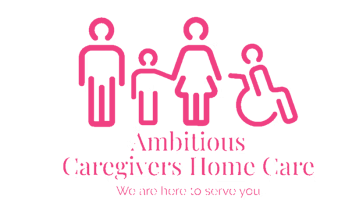Introduction
In recent years, many families are turning to a private home care provider instead of traditional agency care. The personal touch, flexibility, and potential cost savings are big draws. In this article, we’ll explore why this trend is gaining momentum. We’ll dive into the ins-and-outs of private home care providers, how they differ from agency providers, and why families feel more connected and comfortable with them.
What Is a Private Home Care Provider?
A private home care provider is usually an individual caregiver hired directly by a family, rather than through an agency. They offer non-medical support help with daily living activities, meal prep, companionship, transportation, and light housekeeping. This one-on-one, consistent care model is highly valued by those who want personalized attention for their loved ones.
Why More Families Are Choosing Private Home Care Providers
1. Personalized Care & Strong Bonds
One of the main reasons families prefer a private home care provider is the personalized attention. Unlike agency models where caregivers rotate, a private caregiver becomes familiar with the person’s habits, routines, likes, and dislikes. They build trust, often becoming like a close friend or part of the family something many seniors and children appreciate.
2. More Flexibility
A major plus is flexibility. Families can discuss schedules directly, and adjust hours or duties without navigating agency protocols. Whether you need extra time in the morning, weekends, or nights private providers are often more accommodating. The care is tailored, not one-size-fits-all.
3. Cost Advantages
Hiring a private home care provider can be more cost-effective. Agencies add administrative overheads, insurance, and markups, which increase the hourly rate. With private care, families negotiate directly with caregivers and pay only for what they need . This often results in 20–30% savings compared to agency care .
Private vs. Agency: Pros and Cons
Benefits of Hiring a Private Home Care Provider
- Lower cost – No agency premium, direct pay to caregiver
- Consistent presence – The same person cares for your loved one, reducing confusion
- Direct communication – Quick feedback and adjustment without middlemen
- Flexible arrangements – Schedule care to suit your family’s exact needs
Challenges of Hiring Private
- You’re the employer – Handling payroll, taxes, insurance, and contracts is on you
- No backup – If caregiver is sick or unavailable, you need alternatives
- Liability risks – Injury, theft, or accidents may fall on the family without agency safeguards
Benefits of Agency Home Care
- Professional oversight – Includes caregiver background checks and training
- Backup support – Agencies offer substitute caregivers when needed
- Administrative ease – They handle payroll, taxes, contracts, liability insurance
- 24/7 availability – Agencies make it easier to get round-the-clock care arrangements
Drawbacks of Agency Care
- Higher costs – Agency fees and markups increase overall expenses
- Less control – Rotating caregivers may impact consistency and trust
- Reporting bureaucracy – Families sometimes find the process rigid or impersonal
How to Decide What’s Best for Your Family
1. Assess Your Needs
Do you need simple companionship and daily tasks help, or more specialized support? For basic care, a private home care provider often makes sense. For complex medical conditions or around-the-clock needs, agency care might be safer.
2. Prepare to Handle the Administration
Willing to manage payroll, taxes, and liability? If so, a private home care provider gives you flexibility and savings. Otherwise, an agency model spares you this overhead.
3. Plan for Backup Care
If your caregiver calls in sick what’s your plan? Hiring a backup caregiver in advance or partnering with a registry can help ensure continuous care.
4. Verify Qualifications
For private hires, conduct thorough interviews, background checks, and check references. Also consider certifications in elder care, first aid, or dementia care. Some providers may verify credentials through registries
Real Family Insights
From Reddit forums and family support groups, actual users share insights:
“It has been wayyy better for her to have stability, routine, and activities throughout the day.”
“Private caregivers can often get around $35 bucks or more an hour. … most agencies … pay less.”
These real voices highlight flexibility, consistent care, and financial considerations that matter most to families.
Tips to Get the Most from a Private Home Care Provider
1. Use a Caregiver Registry or Referral Service
These services help match caregivers with families and often handle screenings or paperwork bridging the gap between full self-employment and agency care.
2. Create a Written Care Agreement
Outline duties, schedules, pay, sick leave, holidays, confidentiality, and emergency backup care arrangements. This reduces misunderstandings and protects both parties.
3. Vet Thoroughly
Check IDs, employment history, references. Consider basic testing in CPR or elder care skills. Many private caregivers invest in training to make themselves more employable .
4. Set Up Backup Care
Line up a substitute caregiver or trusted friend in advance. A care “plan B” ensures no gaps when your primary caregiver is unavailable.
Conclusion
The shift toward a private home care provider reflects families’ desire for personalized, consistent, and affordable care. When done correctly with clear agreements, backup plans, and thorough vetting it can offer unbeatable flexibility and connection.
While agencies offer professional support and backup coverage, private care beats them in cost and relationship building. For many households especially those balancing school runs, elder care, and busy schedules a private home care provider is becoming the preferred option.
if you’re one of those families looking for private caregivers, proper planning will ensure smooth, secure, and caring support. Choose wisely, and you can provide truly meaningful and effective care at home.
FAQs: Hiring a Private Home Care Provider
1. Can I pay a private caregiver legally without breaking labor laws?
Yes but you’ll need to treat them as an official employee (payroll taxes, national insurance, contracts). Using a payroll service may simplify it.
2. What backup plans should I have in place?
Either hire more than one caregiver or have a pre-arranged backup through a registry or care network prevention is key.
3. Is it safe to let an uninsured caregiver work in my home?
It’s risky. Without insurance, any injury or property loss could come back to you. Consider requiring insurance or getting liability coverage.
4. Can I still use some agency services while having a private caregiver?
Yes! Many families use a hybrid approach: private caregiver as primary, agency nurse or aide visits periodically for assessments.








